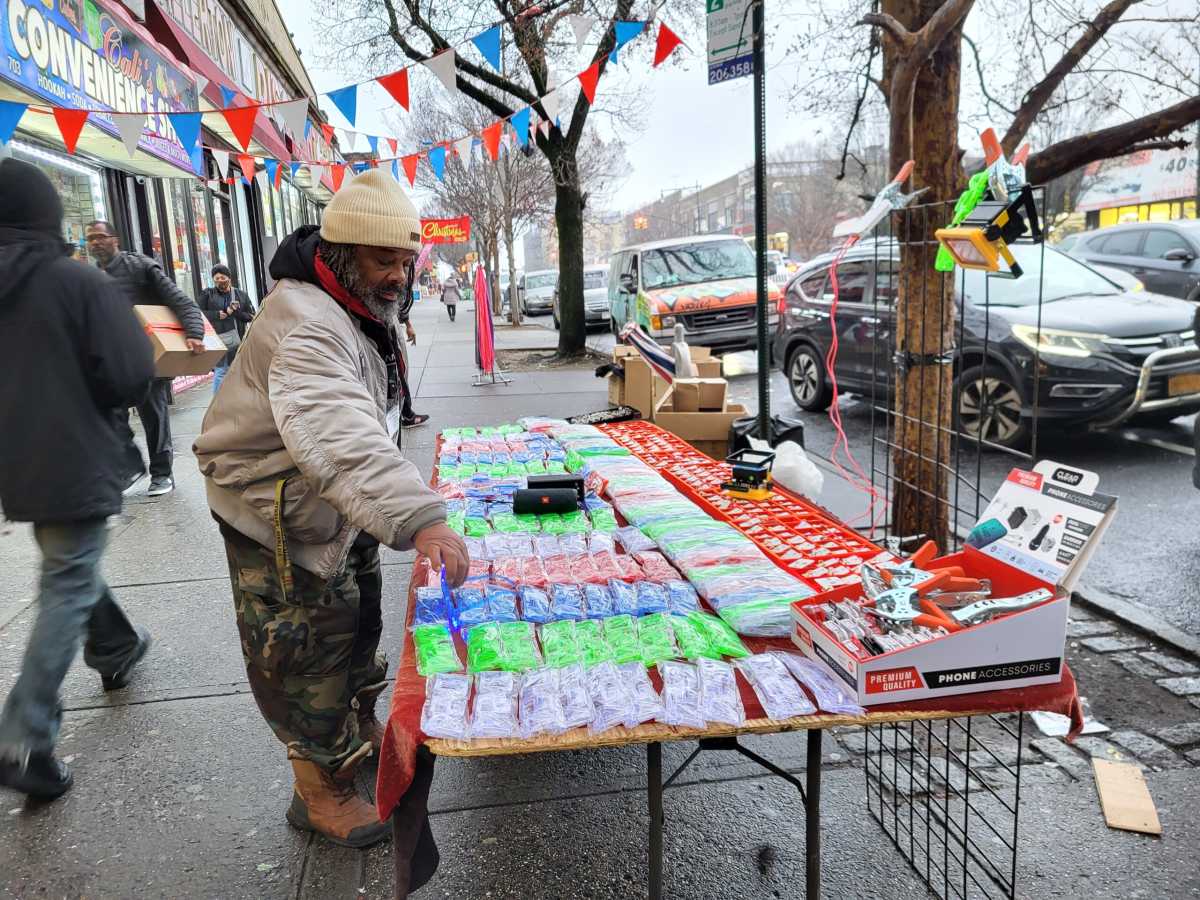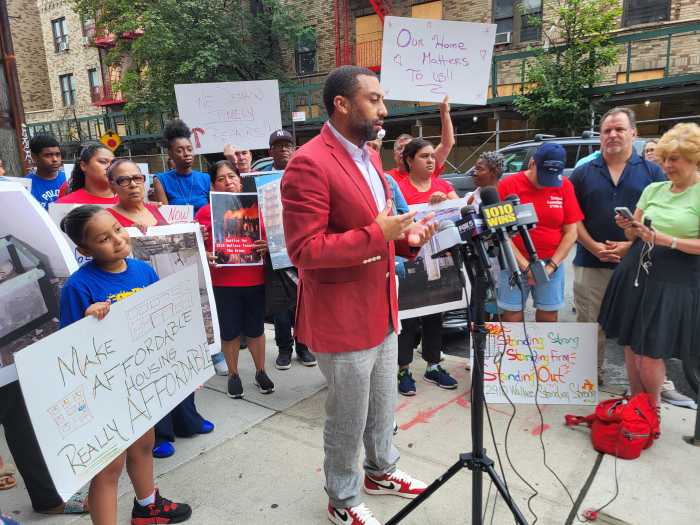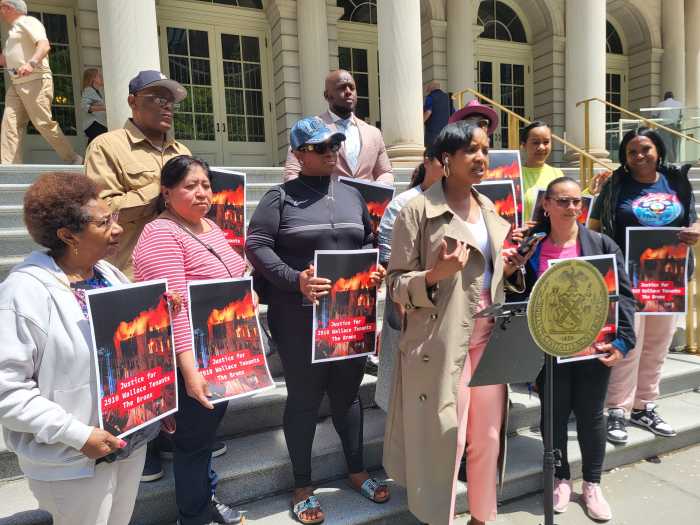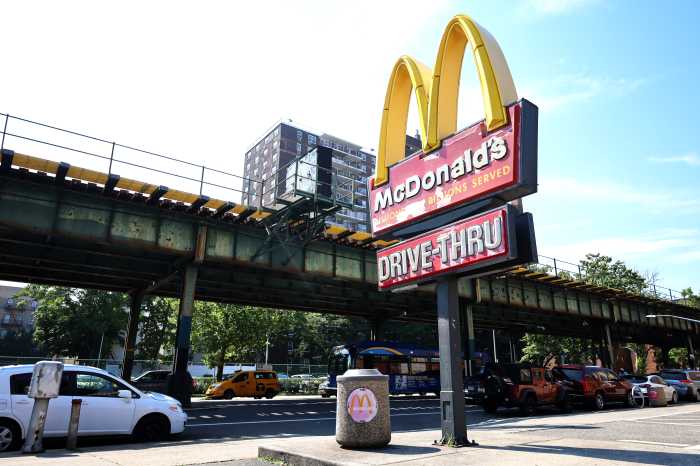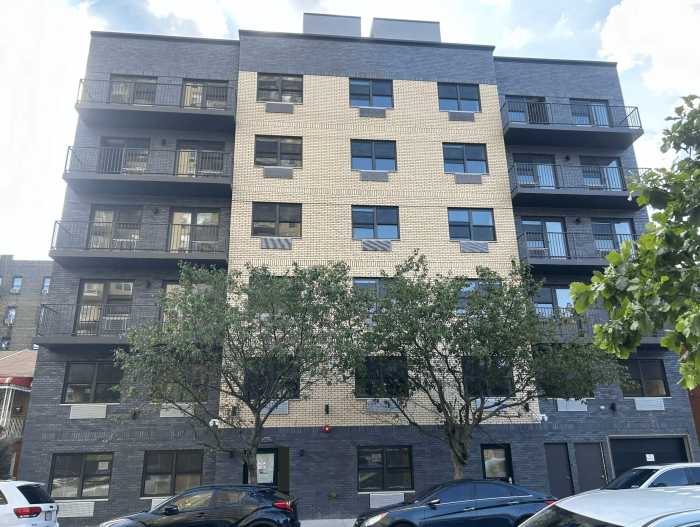In the Bronx’s Allerton neighborhood, street vendors are continuing to clash with the city over the right to vend on its bustling commercial corridor.
With the city shutting down its famed Brooklyn Bridge vendors on Jan. 3 and generally ramping up enforcement — which is handled by sanitation officers — neighborhoods with a longtime street vending presence are feeling the pinch.
Larry Taylor, a disabled Vietnam veteran who served from 1972 to 1974, is the latest Allerton vendor to complain of being unfairly cited.
He is among several in an ongoing cycle who claim that DSNY issues summons for invalid reasons and that confiscations have cost them thousands of dollars’ worth of merchandise and display equipment.
“[Officers] came over just to harass and start trouble,” Taylor told the Bronx Times .
But he and others say they aren’t going anywhere. When sanitation officers showed up to Allerton Avenue and White Plains Road around 1 p.m., it was no surprise to the vendors lining the intersection, who say that DSNY has been coming regularly for months.
But in Taylor’s case, he assumed he would have no problem because he holds three different vending licenses.
One is a white card from the city’s Consumer Affairs department that expired in September 2020 — which Taylor claimed he never received a renewal notice for, perhaps due to COVID delays. He also had two other licenses: a yellow card from the Department of Consumer Affairs labeled “Disabled Vet General Vendor Citywide Specialized License” and a laminated paper issued in 2004 by the Bronx County Clerk titled “Veterans License to Hawk, Peddle and Vend Merchandise.” Neither of these documents show an expiration date.
Taylor argued that both licenses for disabled veterans are valid for life and should take precedence over the expired white card — but DSNY officers disagreed.
According to a spokesperson for the Department of Consumer and Worker Protection, records show that Taylor was contacted twice about the expired white license and never applied for renewal.
In an effort to understand the dispute, reporters reached out to the Bronx County Clerk’s office and the Department of Veterans’ Services but did not receive a response. DSNY said in an email that Taylor “must have a General Vendor License (white card) to operate” but did not respond to questions about how disabled veterans know if their licenses are still valid.
The Bronx Times also reached out to the Street Vendor Project and the NYC Veterans Alliance and did not receive a response before press time.
Veteran vendors

Since World War II, New York state has carved out easier pathways for disabled veterans with an honorable discharge to become vendor-entrepreneurs.
The current licensing process — which some business leaders have called a “broken system” — involves at least three city agencies and seven different license types, depending on whether the vendor is selling food or merchandise.
Some Bronx elected officials, including District 18 Councilmember Amanda Farías, want to open more routes for New Yorkers to become vendors and to simplify the process.
The City Council has taken up four bills aimed at expanding and improving the process for would-be vendors. Farías’ district does not include Allerton, but as chair of the Committee on Economic Development, she is one of four council members working to pass the bills.
“It’s clear that we need comprehensive reform to dramatically overhaul the dysfunctional status quo,” Farías said in a Dec. 7 Instagram post.
Although Taylor thought he was operating legally, “Currently, too many of our would-be entrepreneurs are forced to rely on underground and illegal markets due to the impossibility of navigating the city’s street vending system,” Farías said in a statement to the Bronx Times.
Steep penalties
Taylor said he has lived in the borough since the 1960s and has a long history of vending on and off in various neighborhoods. Dec. 28 was the first time his merchandise was confiscated, he said.
He said he has heart problems that resulted in surgery about 10 years ago, and he also struggles with mental health.
According to him and his partner, DSNY confiscated about $5,000 worth of merchandise they had stocked ahead of New Year’s Eve, including light-up eyeglasses, jewelry and hats. They said they got the items back the next day but with a “huge amount of damage,” to the point where some could not be sold.
Taylor was cited for vending within 20 feet of business entrances and exits, which comes with a $25 fine if one pays the “mail-in” penalty, which amounts to pleading guilty.
But he was also cited for vending without a license, for which the “mail-in” penalty is $250 — and the maximum can jump to $7,750 if a vendor decides to challenge the summons in a hearing.
“We might have to put in a lawsuit,” said Taylor.
But either way, vendors like him aren’t leaving. Right after DSNY officers cited him, Taylor and his partner quickly set up backup merchandise — a move that has become routine for him and others.
This back-and-forth has been ongoing in the area for months. In an email to the Bronx Times, DSNY said they had “conducted several days of outreach and warnings” prior to citing Taylor and that they take a “warnings-first” approach whenever possible.
But despite DSNY enforcement, the informal economy keeps chugging along — in Allerton and elsewhere — because people are buying what they’re selling.
“Our economy is incomplete without street vendors,” Farías said in a statement. “We need a regulated, predictable, enforceable system that protects workers and lets them work.”
Reach Emily Swanson at eswanson@schnepsmedia.com or (646) 717-0015. For more coverage, follow us on Twitter, Facebook and Instagram @bronxtimes

